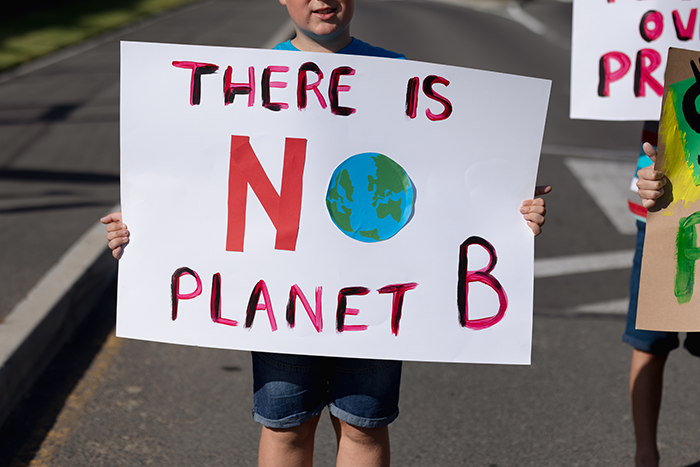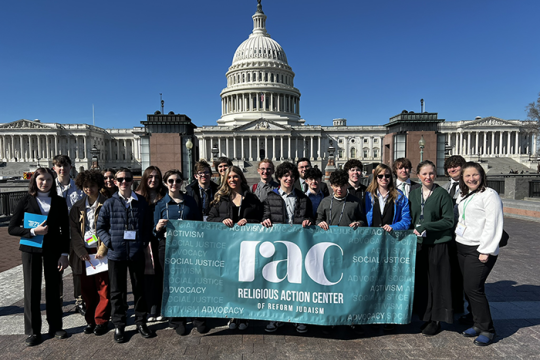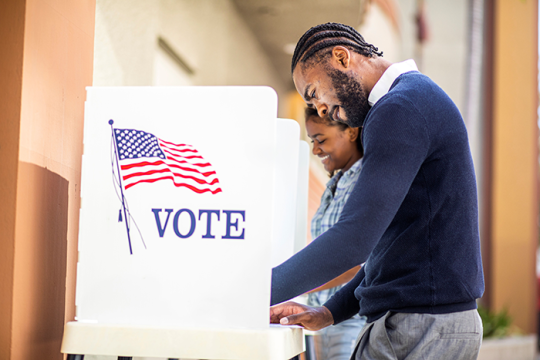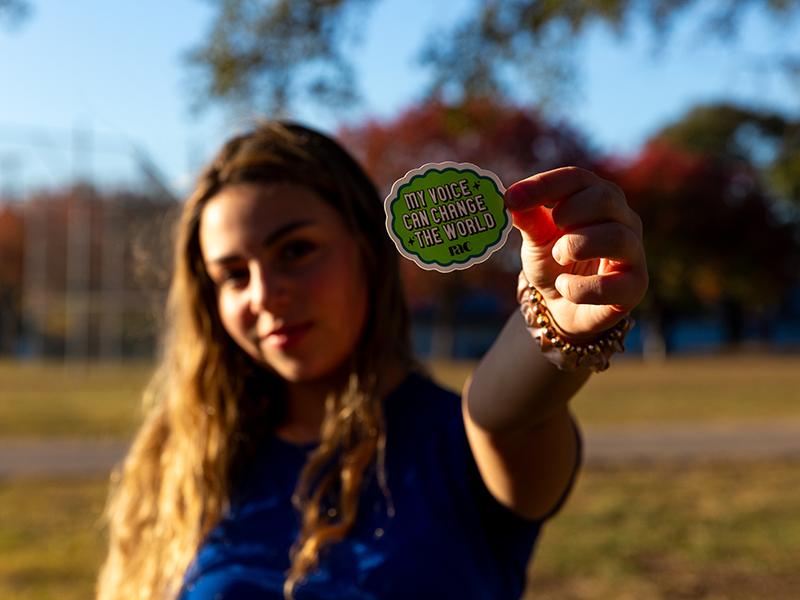
The RAC is proud to bring thousands of teens to Washington, D.C., for our annual L'Taken Social Justice Seminars. After three days of intensive programming and learning about just a few of the many issues prevalent in our country today, all participants travel to Capitol Hill to meet with their members of Congress and advocate in support of the things they care about.
This year, as we approach Earth Day on April 22nd, we are amplifying the voices of our L'Taken participants. These teens, who are at the forefront of our fight for environmental justice and climate change, are not just the future-they are the present. Their actions today will shape the world they are growing up in, and they will bear the consequences of our decisions. These teens embody the passion of the Reform Movement to make our voices heard and spur meaningful change.
This speech was written by Hadley L., Amelia B., and Maya Z. from Temple Beth El in Charlotte, North Carolina.
Climate change is a global phenomenon created predominantly by the burning of fossil fuels, which add heat-trapping gases such as carbon dioxide, methane, and nitrous oxide to the Earth's atmosphere. There are a variety of consequences for the global climate that have already surfaced from these greenhouse gas emissions, primarily including an extreme increase in abnormal weather events like firestorms, wildfires, and more frequent and severe hurricanes. These weather events disrupt lives and threaten the safety of communities all around the world. Between January and August of 2023 alone, the United States had 23 severe weather events that resulted in more than 1 billion dollars in damage each. Among the highest were the Hawaii firestorms that claimed the lives of more than 100 people and caused approximately $5.5 billion in community damage.
Since the Industrial Revolution, atmospheric levels of carbon dioxide have increased by more than 30 percent to the current level of over 4120 parts per million and rising at a rate of 2 to 3 parts per million per year. If carbon dioxide emissions continue at this rate, we will soon start to see decreased rainfall, species loss, ocean acidification, and sea levels rise. The cumulative scientific evidence is undeniable: climate change is a threat to human well-being and planetary health. We only have a short period of time left to ensure a livable and sustainable future for all.
In the Talmud, a sacred Jewish text, we read about the sage Honi's encounter with an old man planting a tree. Honi asked him: "How many years will it take for this tree to give forth its fruit?" The man answered that it would require 70 years. Honi asked: "Are you so healthy a man that you expect to live that length of time and eat its fruit?" The man answered: "I found a fruitful world because my ancestors planted it for me. So, too, will I plant for my children" (Babylonian Talmud, Ta'anit 23a). When Honi first encounters the man, he immediately jumps to the conclusion that the only intention of the tree would be to later feed the man himself. However, the man's words help him to understand that the most important actions we take are not for ourselves, but for others. The man acknowledges those before him who created the world he can thrive in, and in doing so he passes his gratitude forward for future generations to be granted that same privilege. For us, imagining things we will never see doesn't come naturally in a world so focused on the here and now, on the creating and destroying, on the rebuilding and then the inevitable destroying again.
But, Jewish texts and traditions teach us to first and foremost be good caretakers of the earth. In Genesis 2:15, we read that "The human being was placed in the Garden of Eden to till it and to tend it." God put us on this Earth, to take, but also to give. We have become so focused on the taking, the growing, the expanding, the money-making, the oil fracking, and the industrializing, that we forget to slow down and tend. We must give back and repair the Earth before there is no longer an Earth to give back to. Fossil fuels will run out, our oceans will rise, animals will die, and ice will melt. We may not be around to see it firsthand, but our future generations will pay the price.
As a kid, no day of the year was better than a snow day. The best feeling in the world was finding out that you could sleep in as late as you wanted the next day instead of waking up early to go to school. I have fond memories of those days, sledding down hills with the other kids in my neighborhood, attempting to make snowmen, and going inside to a warm cup of hot cocoa once the cold became too much for me. Throughout the entirety of elementary school, every year had a few snow days, but by the time I got to middle school, the number seemed to decrease drastically. In fact, as a high schooler, it's been over two years since I've even seen snow. In recent years the only times I've gotten school off has been due to strange, abnormal weather events. Flash floods, thunderstorms, and extreme winds outside of hurricane season on a level that has never been seen before. Sledding in a flash flood is unappealing. Making snowmen in a thunderstorm is impossible. And hot cocoa just doesn't taste as sweet while you're wondering what damage the winds will have caused by the time you wake up the next morning. That being said, this bill doesn't need to be passed because of our lack of snow days. This bill needs to be passed to ensure that further damage isn't caused by these floods and storms, not to mention the fires, heatwaves, and droughts that have yet to reach North Carolina. And, if the children of the future get a few snow days out of it, that's always a plus.
We urge you to support environmental justice and accountability by cosponsoring the A. Donald McEachin Environmental Justice for All Act (S.919/H.R.1705). In doing so, you would be supporting consideration of cumulative impacts in permitting decisions under the Clean Water Act and the Clean Air Act, ensuring that no project will be permitted without demonstrating a reasonable certainty of no harm to human health. You would be creating a platform for further research, education, outreach, development, and implementation of projects to address environmental and public health issues - and supporting communities and workers transitioning to more eco-friendly forms of energy. Metaphorically speaking, you'd be planting a tree. Let future generations eat its fruit.
Join these L'Taken students in urging Congress to pass the Environmental Justice for All Act.
Related Posts

Highlights from the 2024-2025 L'Taken Season

Celebrating Disability Pride Month: Teens Urge Congress to Fund Special Education

